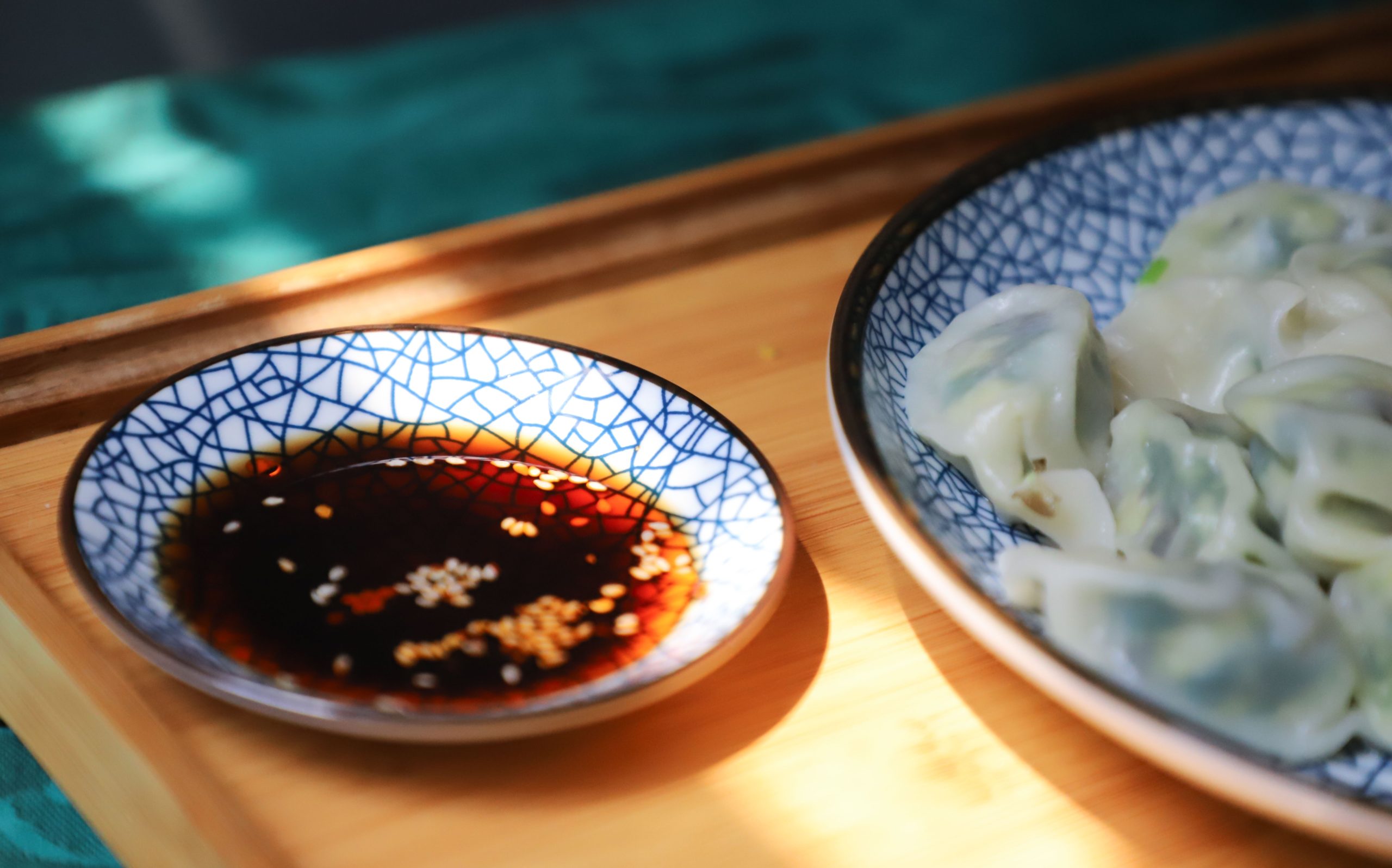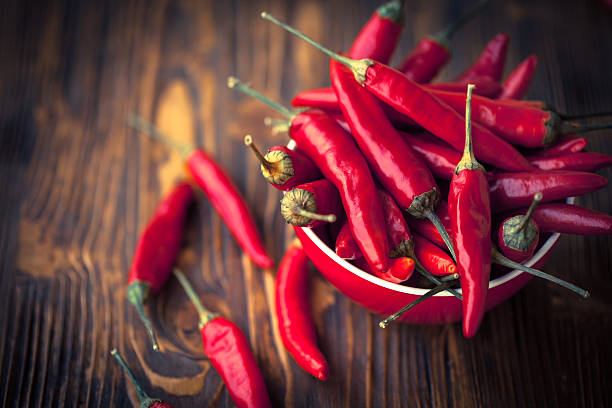All About Soy Sauce Nutrition Facts, Benefits, and Health Risks

You may have soaked your Chinese food in soy sauce various times to add taste and flavor to the food. But have you ever thought about soy sauce nutrition facts? Or, Is soy sauce good for your health? If yes, then here is an article with all you need to know about soy sauce, nutrition facts, health benefits, and risks.
What is Soy Sauce?
Soy sauce is a flavorful ingredient that is made by fermenting soybeans and wheat. The four main ingredients of soy sauce include soybeans, salt, wheat, and fermenting agents such as yeast or mold. The process of producing soy sauce can vary remarkably, which causes changes in texture, flavor, soy sauce nutritions, and risks.
In many Asian countries, soy sauce is a staple ingredient. It is believed that this Asian ingredient was made from a Chinese product named “Chiang” around 3,000 years ago. The same type of products was developed in other countries of Southeast Asia like Korea, Indonesia, and Japan.
Soy sauce was introduced in Europe in the 1600s through Japanese and Dutch trading. At the present time, it is one of the most popular soy products across the globe.
Soy Sauce Nutrition Facts
Do you ever check soy sauce nutrition labels? Does soy sauce have gluten? Have you ever thought about soy sauce calories or carbs in soy sauce? If yes, then continue reading the article.
Now that you know what is soy sauce, let’s have a look at soy sauce nutrition facts. Below mentioned nutrients are present in 1 cup or 255 grams serving of soy sauce (Source).
- Calories: 135
- Sodium: 14.374g
- Fat: 0.1g
- Carbohydrates: 19.4g
- Sugars: 4.3g
- Fiber: 2.0g
- Protein: 16.0g
Carbs
So, how much are carbs in soy sauce? One cup (255g) serving of soy sauce provides just 135 calories and contains around 19.4g of carbohydrates. It also has little sugar 4.3g. If you consume one cup of soy sauce, you get fewer carbs, sugars, and calories.
You do not have to worry about the glycemic load or glycemic index for soy sauce. However, as the portion size of soy size is small and contains few carbohydrates, its effect on the blood sugar level is minimal. Moreover, soy foods are believed to have low glycemic responses.
Protein
Soy sauce renders a small amount of protein, around 16.0g, in one cup serving.
Fats
Soy sauce is remarkably low in fat. It provides around 0.1g of fats per serving.
Vitamins and Minerals
As soy sauce is consumed in small amounts, it is not actually a good source of minerals or vitamins. The only remarkable nutrient present in soy sauce is sodium. One cup serving of soy sauce contains 14.374g of sodium.
Health Benefits of Soy Sauce
Did you ever wonder that soy sauce also has health benefits? Yes, you read it right. Soy sauce and components present in it has some remarkable health benefits.
Encourages Digestion
In a research study, around 15 people were given soy sauce broth, and it led to increased secretion of stomach juice. This is similar to the amount that is secreted after ingesting caffeine (Souce). It is believed that stomach juice secretion helps indigestion.
May Reduce Allergies
In a research study, 76 people having seasonal allergies were given 600 mg soy sauce component every day. It led to the improvement of symptoms in the individuals (Source).
Rich Source of Antioxidants
It is believed that dark soy solace contains a wide range of strong antioxidants. Still, it is not clear the benefits on humans; however, one study presented that it has positive effects on heart health (Source).
Gut Health
It is found that some isolated sugars present in soy sauce create a positive impact on some types of bacteria present in the gut. It could be beneficial for our gut health.
Promote Immune System
Polysaccharides are one type of carbohydrates that is found in soy sauce. Some animal studies present evidence that it helps to enhance the immune system. However, human studies are required for more evidence.
Anticancer Effects
Some animal studies show that soy sauce might have a tumor and cancer-inhibiting effects. More research is required to confirm the results in humans.
May Lower Blood Pressure
Some types of soy sauce like Korean ganjang reduces blood pressure in mice. Nevertheless, human studies are needed to confirm the results.
Various research studies on soy sauce present effective health benefits for cancer, blood pressure, immune system, and gut health. Nevertheless, most of these studies are conducted on animals, so research studies in hum are required.
Adverse Effects of Soy Sauce
Health issues are often associated with soy sauce, including the presence of cancer-causing compounds, salt content, and certain reactions to components such as amines and MSG. Now you know the soy sauce nutrition facts, so let’s have a look at the adverse effects of soy sauce.
High in Sodium
Soy sauce calories are not too much, but this flavorful ingredient is significantly high in sodium. Yes, you read it right. Soy sauce is loaded with sodium, which is commonly known as salt. It is an essential nutrient needed by our body.
However, high consumptions of sodium are associated with high blood pressure in people who are salt-sensitive. It may lead to the risk of heart disease, high blood pressure symptoms, and other issues like stomach cancer (Source).
Though soy sauce is high in sodium, you can still enjoy it on a healthy diet. Moreover, it would be better to limit the intake of processed food so that you can manage your every day sodium intake. In addition to this, you can include soy sauce in your healthy diet that is loaded with whole foods.
May Have Cancer-Causing Substances
When making processed foods, certain toxic substances like chloropropanols are produced. The same group of substances is produced when making soy sauce.
One type, which is known as 3-MCPD, is also found in acid-hydrolyzed vegetable protein. It is the type of protein that is found in soy sauce. Various animal studies present evidence that it is a toxic substance. It can cause damage to the kidneys, cause tumors, and decrease fertility.
Across the world, there have been various recalls of products of soy sauce that exceed the safe limits. Therefore, it is better to opt for soy sauce that is naturally fermented.
May be High in Monosodium Glutamate
MSG or Monosodium Glutamate is a flavor enhancer. It is naturally present in some foods and is popularly used as a food additive.
It is a type of glutamic acid that remarkably contributes to the umami flavors found in foods. MSG and its type glutamic acid are essential parts of the delicious umami taste present in soy sauce. However, MSG was once related to causing headaches. Current studies suggest that it is not the case.
Contains Wheat and Gluten
Does soy have gluten? It is an important question. Many people are not aware of the fact that soy sauce contains both gluten and wheat. There are certain signs and symptoms of gluten intolerance.
People who are allergic to when or have celiac disease should avoid the consumption of soy sauce. If you are allergic to wheat, then you should check the soy sauce nutrition label. Make sure to opt for gluten-free soy sauce.
Contains Amines
Amine is a naturally occurring chemical present in animals and plants. This chemical is used in higher concentrations in foods like fish, cheese, meats, and other aged foods.
Soy sauce has remarkable amounts of amines, including tyramine and histamine. Too much histamine is not good for health as it can cause toxic effects. Some common symptoms include dizziness, sweating, itching, rashes, stomach issues, headaches, and changes in blood pressure. If you are sensitive to amine, then you should avoid the consumption of soy sauce.
Soy Sauce Allergies
Now that you know soy sauce nutrition facts let’s check out the soy allergies. Soy is one of the common allergies. People who are allergic to milk, beans, and when could have allergic reactions to soy sauce.
Some common symptoms of soy allergy can range from mild to severe. The mild symptoms include itching around and in the mouth. Moreover, the severe symptoms include anaphylaxis, and it can be life-threatening. If you are allergic to soy sauce, then you should avoid the consumption of soy sauce.
Soy Sauce Varieties
Some common varieties of soy sauce include tamari and shoyu. However, there are other varieties also. For instance, dark soy sauce is sweeter and has caramel or molasses added to it. You can also find white soy sauce, which is lighter in color. It is often preferred, but people who do not want the dark color of normal soy sauce in their recipes.
Final Words
Soy sauce is an amazing flavorful ingredient that is used in a wide range of cuisine and dishes. It is produced through chemical hydrolysis or natural fermentation. Each method of production has different health profiles and flavors.
Soy sauce nutrition facts are impressive as it is rich in sodium. Consumption of soy sauce in a healthy diet is beneficial. However, excess consumption of soy sauce is harmful to people with salt-sensitivity. To succinctly describe, soy sauce can be consumed in moderation. If you find the information on soy sauce beneficial, drop a comment.






